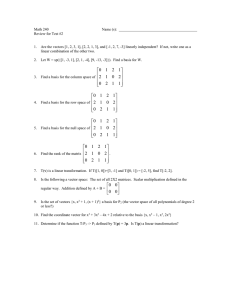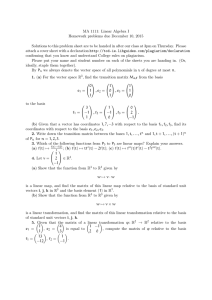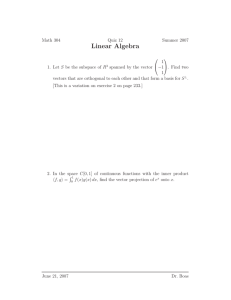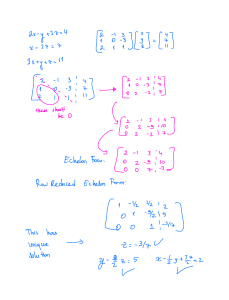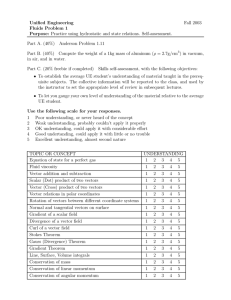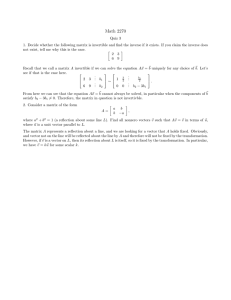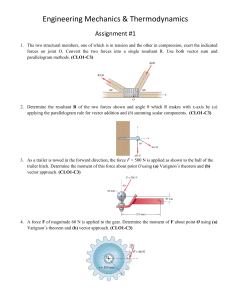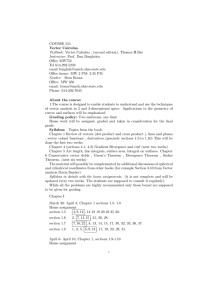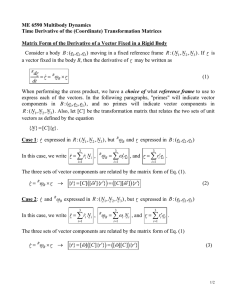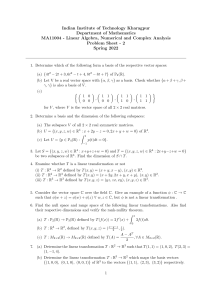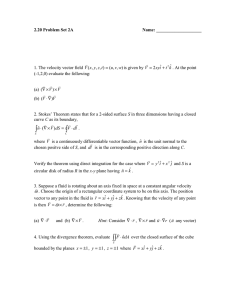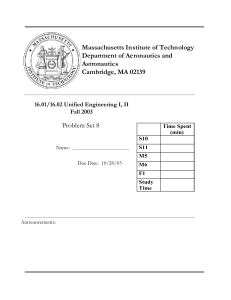Linear Transformations: Matrix & Basis Representation
advertisement
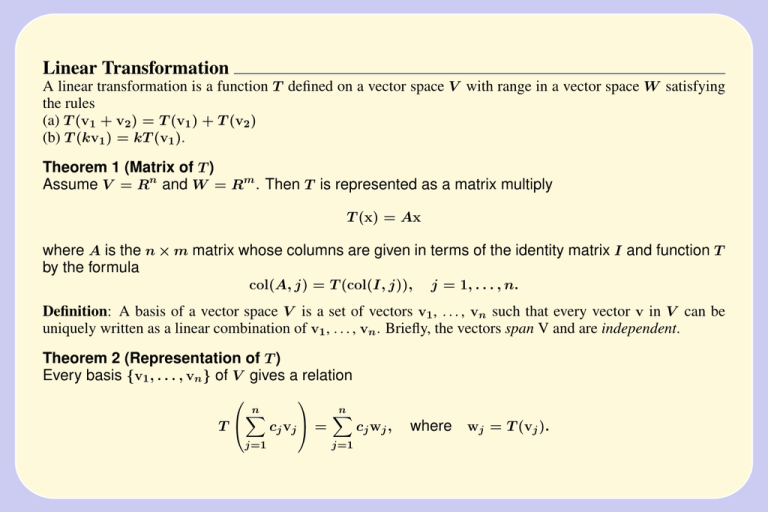
Linear Transformation
A linear transformation is a function T defined on a vector space V with range in a vector space W satisfying
the rules
(a) T (v1 + v2 ) = T (v1 ) + T (v2 )
(b) T (kv1 ) = kT (v1 ).
Theorem 1 (Matrix of T )
Assume V = Rn and W = Rm . Then T is represented as a matrix multiply
T (x) = Ax
where A is the n × m matrix whose columns are given in terms of the identity matrix I and function T
by the formula
col(A, j) = T (col(I, j)),
j = 1, . . . , n.
Definition: A basis of a vector space V is a set of vectors v1 , . . . , vn such that every vector v in V can be
uniquely written as a linear combination of v1 , . . . , vn . Briefly, the vectors span V and are independent.
Theorem 2 (Representation of T )
Every basis {v1 , . . . , vn } of V gives a relation
T
n
X
j=1
cj v j =
n
X
j=1
cj w j ,
where wj = T (vj ).
